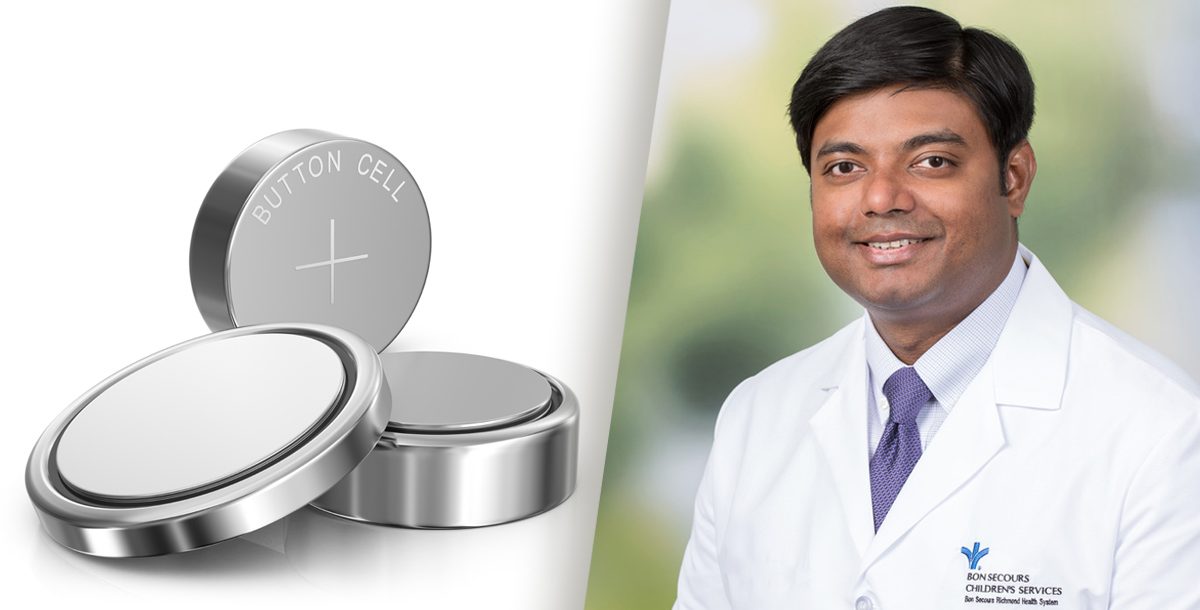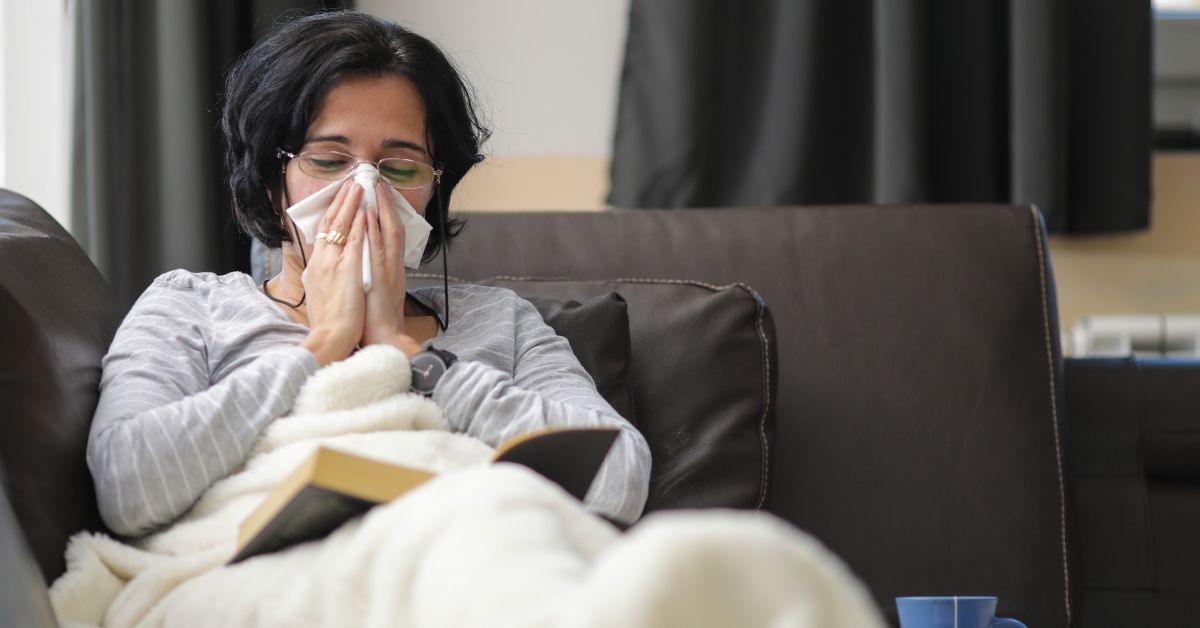Praveen Selvakumar, MD, a pediatric gastroenterologist in our Richmond market, shares his firsthand thoughts on the dangers button batteries can pose for children this holiday season.
Childproofing a home can be a daunting task for parents. As a father of young children, I always feel the need to step up my game in childproofing the home since kids can be curious and creative.
In my job as a pediatric gastroenterologist, we often take care of children who have swallowed various types of household things. Of these we encounter, one is the seemingly benign and cute button battery. However, these are one of the most dangerous household items and can cause significant damage to kids!
Button batteries are made of lithium and provide a much higher voltage than alkaline batteries. Therefore, they are widely used by manufacturers in common household and recreational products such as watches, toys, remotes, musical greeting cards, fidget toys, doodle boards and hearing aids. Looking like a shiny coin in size and appearance, they can be easily swallowed by little ones, leading to increased incidents of button battery ingestion.
The National Battery Ingestion Hotline (NBIH) was formed in 1982 to collect and provide recommendations for button battery ingestions. As of 2017, approximately 3,300 button battery ingestions occur in the United States, of which up to 3 percent can have major or even fatal outcome. In fact, every three hours a child or a teenager will arrive at an emergency department for battery ingestion. The majority of the ingestions occur in children less than 6 years of age, with larger button batteries being associated with major outcomes and even death.
After swallowing, these batteries can get lodged in esophagus of young kids. When they come in contact with saliva and surrounding tissue, strong chemical reactions can occur, leading to significant damage of the esophagus and even death. In addition, leakage of harmful chemicals from button batteries can also cause corrosive injury of the esophagus. This damage can happen in as little as two hours after ingestion. Children experiencing button battery ingestion usually refuse to eat, drool, experience chest pain, abdominal pain, have difficulty in breathing and even vomit and cough.
Like with most things, prevention is the best cure. So, it is very important that families should keep all button batteries, both used and new, out of reach and sight of children. Used batteries should be disposed appropriately with caution. Also, parents should try to buy toys with secured battery compartments that you need to use tools to open. It is not uncommon for these ingestions to go unwitnessed, so parents should be diligent about investigating household items for missing batteries.
If you suspect or witness ingestion of a button battery by your child, prompt action should be taken to prevent damage.
You should:
- Immediately call the National Battery Ingestion Hotline at 800-498-8666 or poison control at (800) 222-1222
- Next, take your child to nearest emergency department. Please try to provide the battery identification number, which can be found on the matching battery or package, as this is useful information for health care providers. Do not induce vomiting or let your child eat or drink anything.
Learn more about pediatric services and pediatric digestive health services we offer at Bon Secours.





